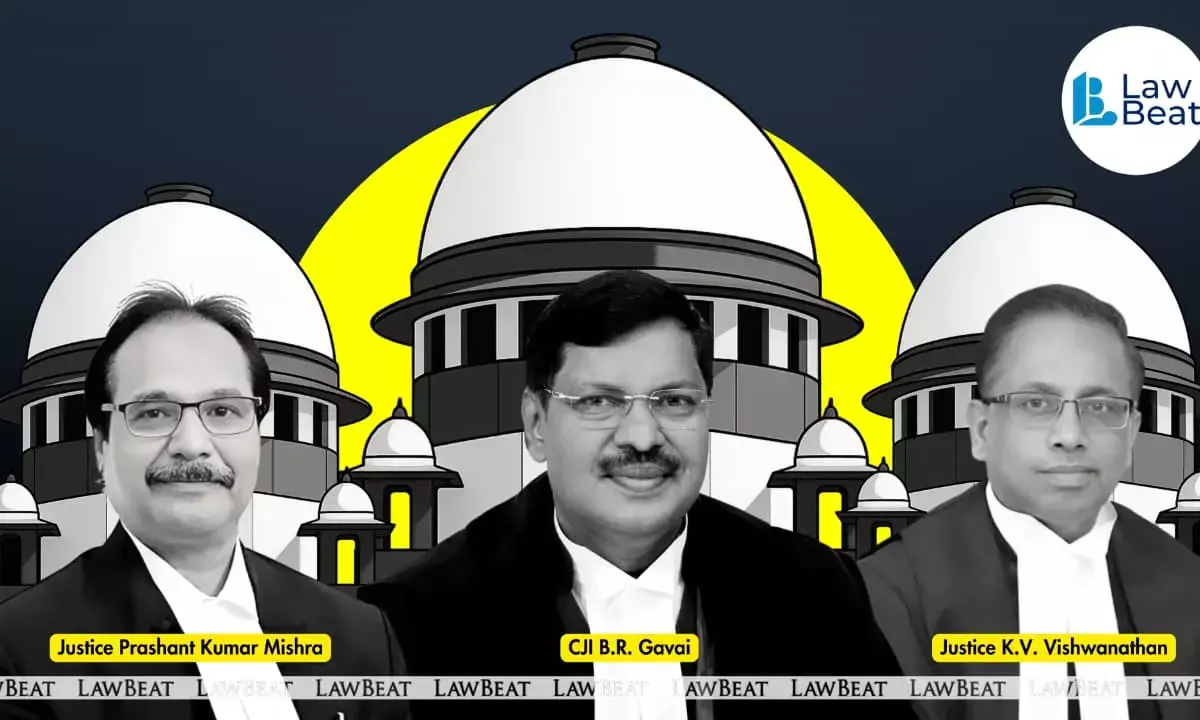‘Unutilised Village Lands Vest with Proprietors’: Supreme Court overturns 2022 ruling in Haryana village land dispute

The Supreme Court of India upholds the Punjab and Haryana High Court's ruling on unutilized village land, or 'bachat land'
The Supreme Court, on September 16, 2025, upheld the validity of the Punjab and Haryana High Court's full bench judgment of 2003, which had held that unutilised land, not specifically earmarked for common purposes during consolidation, would continue to vest with proprietors rather than the panchayat or the state.
A bench of Chief Justice of India B R Gavai and Justices Prashant Kumar Mishra and K V Vishwanathan overturned its own judgment of April 7, 2022, which had allowed the Haryana government's civil appeals against the High Court's decision.
The court had, in 2022, held that the entire land reserved for common purposes by applying pro rata cut had to be utilised by the Gram Panchayat for the present and future needs of the village community and that no part of the land could be re-partitioned amongst the proprietors.
On May 16, 2024, the court allowed a review petition, recalled its 2022 judgment, and restored the civil appeals.
After hearing the appeals afresh, the bench held, ''We have therefore no hesitation in holding that no error could be noticed in the impugned judgment and final order of the Full Bench of the High Court to the extent that it holds that the lands which have not been earmarked for any specific purpose do not vest in the Gram Panchayat or the State".
The High Court had then partly allowed the writ petition preferred by the proprietors/landowners, challenging the amendments carried out in the Punjab Village Common Lands (Regulation) Act, 1961, as inserted by the Haryana Act No. 9 of 1992, holding that the lands which had not been earmarked for any specific purpose did not vest in the Gram Panchayat or the State.
Court noted the full bench of the High Court in the impugned judgment and final order attempted to draw a distinction between the land reserved for common purposes under Section 18(c) of the Consolidation Act of 1948 which might become part and parcel of a Scheme framed under Section 14, for the areas reserved for common purposes, though they had actually not been put to any common use and could be put to common use in a later point of time on one hand and the lands which might have been contributed by the proprietors on pro-rata basis but had not been reserved or earmarked for common purposes in the Scheme.
Court pointed out that the High Court's full bench had referred to a division bench judgment in State of Punjab v. Gurjant Singh (civil appeals of 2001) which had noted a series of judgments delivered by the said High Court relying on the law laid down in the Constitution bench judgement in Bhagat Ram and Others v. State of Punjab and Others (1967).
"All these decisions had held that the land which remains unutilized after utilizing the land for the common purposes so provided under the consolidation scheme vests with the proprietors and not with the Gram Panchayat,'' the bench said.
It was further held that the unutilized land, i.e., the bachat land, left after utilizing the land earmarked for the common purposes, has to be redistributed amongst the proprietors according to the share in which they had contributed the land belonging to them for common purposes, the bench pointed out.
In civil appeals against Gurjant Singh, the State itself did not press the appeals with regard to the directions for redistribution of the bachat land amongst the proprietors according to their share. The only grievance of the State was with regard to the directions to do it within a specified period of time.
Court also pointed out that the full bench of the High Court in the impugned judgment in the alternative held that a consistent view had been taken in more than 100 judgments by the Punjab and Haryana High Court and applying the doctrine of stare decisis, such a view could not be upset.
"The doctrine of stare decisis lays importance on stability and predictability in the legal system and mandates that a view consistently upheld by courts over a long period must be followed, unless it is manifestly erroneous, unjust or mischievous,'' the bench said.
Dismissing the appeals, court found no error in the judgment of the full bench of the High Court in applying the doctrine of stare decisis to the facts of the present case inasmuch as it followed the law which was consistently applied in more than 100 judgments.
Case Title: The State of Haryana Vs Jai Singh And Others
Judgment Date: September 16, 2025
Bench: Chief Justice of India B R Gavai and Justices Prashant Kumar Mishra and K V Vishwanathan
